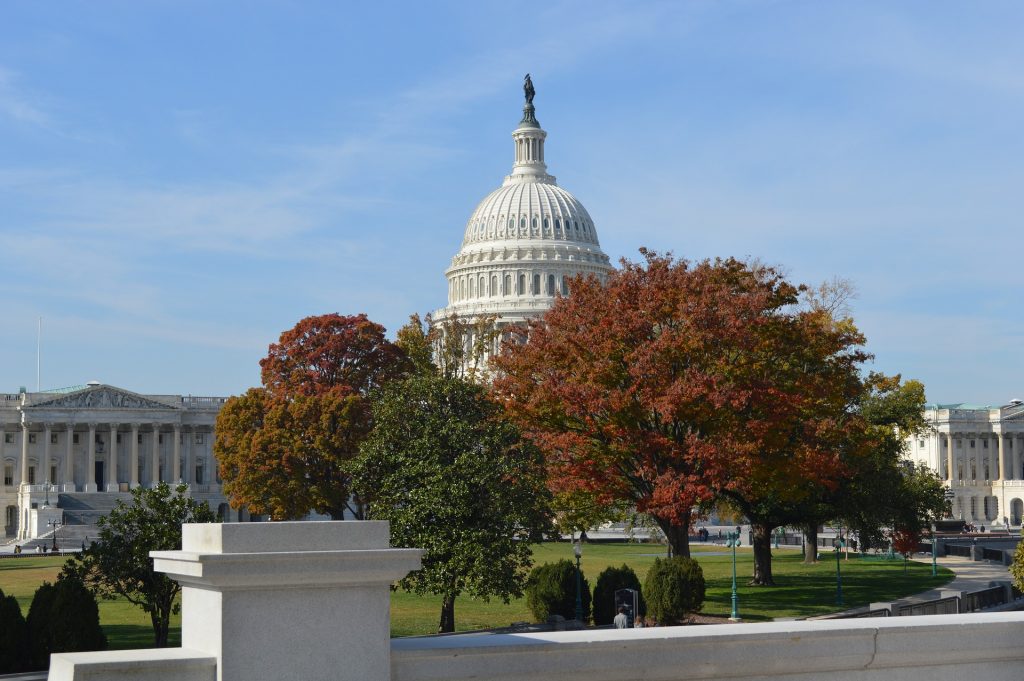
Sheldon Adelson continues to lurk. As shared last week by Poker Players Alliance vice president Rich Muny, four Congressmen have written a letter to U.S. Deputy Attorney General Rod Rosenstein, asking him to reverse the Office of Legal Counsel’s (OLC) clarification of the Wire Act from late 2011 which said that the Act only prohibited sports betting. The letter was dated December 19, 2017.
The letter was signed by Republican U.S. Representatives Dan Donovan of New York, Brian Fitzpatrick of Pennsylvania, Tom Garrett of Virginia, and Louie Gohmert of Texas and looks a lot like a letter signed by Senators Lindsey Graham and Dianne Feinstein about a month earlier. The letters make the same points and were almost certainly written by Sheldon Adelson’s team. Adelson has stated that he will do “whatever it takes” to eradicate online poker and online gambling in the United States.
The Wire Act of 1961 says that sports betting over communications lines is illegal. While it makes sense that the Act would extend to internet sports betting, it doesn’t make sense that it would extend to all online gambling, which is how the Department of Justice interpreted for years. Around Christmas 2011, the OLC clarified the interpretation of Wire Act, explaining that it only applied to sports betting. This opened the door for states to legalize and regulate online gambling within their borders and to date, Nevada, New Jersey, Delaware, and Pennsylvania have done so.
Adelson, to counter, crafted the Restoration of America’s Wire Act (RAWA), a short bill that would basically erase the OLC’s clarification and put into law the DoJ’s previous, incorrect interpretation of the Wire Act. It was introduced more than once in the Senate by Graham and in the House by Rep. Jason Chaffetz, but other than a couple joke hearings in the House, never made progress. In fact, most lawmakers see it for the crony capitalism that it is and don’t give it much consideration.
The letter is a sort of RAWA end-around. If Adelson can’t get his law enacted, might as well try to get the Deputy AG to just invalidate the OLC’s Wire Act clarification. It provides the usual warnings about online gambling, specifically that online gambling can’t be monitored as well as brick-and-mortar gambling and online gambling can be used for terrorist funding, even though the former is likely false and there is no evidence of the latter. It also cites the same, old, mis-interpreted FBI letter. Won’t anyone think about law enforcement?
Anyway, here is the complete letter:
Dear Deputy Attorney General Rosenstein,
Two days before Christmas in 2011, the Justice Department Office of Legal Counsel issued a legal opinion overturning 50 years of interpretation of the federal Wire Act and opening the door to online casinos.
With the stroke of a pen, an unelected lawyer in an obscure office fundamentally changed our nation’s gambling policy – taking an activity previously confined to distinct, controlled, and monitored physical locations and permitting it to be offered 24/7 on mobile devices, laptops, tablets, and home computers.”
Internet gambling carries with it significant law enforcement implications, as the pervasive nature and anonymity of the internet makes it ripe for exploitation by criminals. The FBI has warned Congress that “online casinos are vulnerable to a wide array of criminal schemes,” and that it “may provide more opportunities for criminals to launder illicit proceeds with increased anonymity.”
The FBI also stated that “online poker could be used to transfer ill-gotten gains from one person to another, or several people,” and has testified before Congress that it has been investigating the use of online casinos by terrorist organizations. Other legal issues arise in preventing online casinos from targeting children and, since the internet knows no state boundaries, in protecting the rights of jurisdictions that bar the activity.
In advising Congress, the Bureau inferred it has higher priorities for its limited resources than regulating a legalized Internet gambling industry – specifically, “Counterterrorism, Counterintelligence and Cyber threats to critical infrastructures.” Considering how difficult and resource-intensive pursuit of Internet crimes can be, it is unclear from where the funding will come for law enforcement to police an online gambling industry.
These, and other law enforcement issues should have been fully considered before the Justice Department decided to stop fully enforcing the Wire Act against online casinos – but, according to former Attorney General Loretta Lynch, law enforcement concerns were not part of the mix.
A decision of this import, and one which carries such law enforcement risks as this does, should only be made after a full and public debate in Congress. As such, we urge the OLC Opinion be withdrawn to stop the spread of online casinos across the country in order to give Congress the opportunity to work with your department, as well as state and local law enforcement, to establish a clear federal policy.























